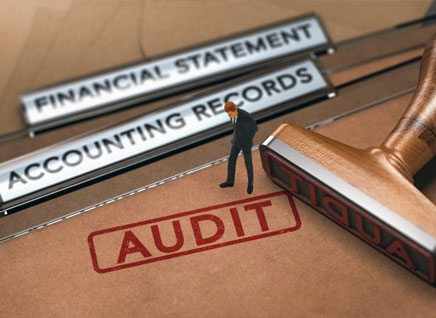Operational Audit
As per the Institute of Internal Auditor (IIA), operational audit is defined as a systematic process of evaluating the effectiveness, efficiency and economy of operations of an organization. Where a financial audit reports on the financial side of a business, an operational audit is in relation to day to day transactions and operating activities.
An operational audit is performed by the internal auditor of the entity and can also be outsourced. It basically helps in strengthening the internal controls, reducing the costs and irregularities. Along with the identifying of anomalies in the procedures, it is also the responsibility of the auditor to provide a strategy to overcome the shortcomings of the business which will help the management take effective measures. Even though it isn’t obligatory to get an operational audit performed, it assists in saving social costs. If you are interested in knowing the effectiveness and efficiency of your operational activities and how to improve your processes, you can get an operational audit done by your own internal audit function or even outsource the job.
The user of an operational audit report is usually the management but specifically it targets the process owners or line managers. Each process is audited by the internal auditors separately to identify any inefficiency during the processes.
Objectives of an Operational Audit:
Operational audits evaluate the efficiency, effectiveness, and compliance of an organization's operational processes and procedures. An Operational audit typically aim to achieve the following objectives:
- Assessing efficiency: Analysing the utilization of resources, the management of time, and the control of costs within a variety of operational processes and activities. Thus, waste can be reduced and resources can be optimized by identifying areas for improvement.
- Effectiveness Assessment: Assessment of an organization's operational efficiency and effectiveness in relation to its goals. Consequently, it is necessary to determine whether the organization's operational processes are aligned with its key strategic objectives.
- Evaluation of Risk: Find out what's at risk and evaluate it. A thorough assessment of internal controls and risk management procedures is necessary in order to mitigate potential operational disruptions, fraud, or compliance issues.
- Legal Compliance: Achieving compliance with laws, regulations, industry standards, and internal policies that govern the organization's operations. An important aspect of compliance is to verify compliance, since non-compliance may have legal and reputational ramifications.
- Expense Analysis: The evaluation and control of operating costs, which includes both direct and indirect costs. An operational audit may identify opportunities for cost savings or determine whether a particular operation is cost-effective.
- Streamlining Workflows: Streamline workflows, optimize resource allocation, and organize procedures to increase productivity.
- Utilisation of Resources: Evaluation of the efficiency of an organization's utilization of resources, including assets, technology, and human resources.
- Evaluation of Performance: Measurement, tracking, and improvement of operational processes using metrics and key performance indicators (KPIs).
- Quality Assurance: Assuring high-quality standards are maintained by operational activities, as well as delivering high-quality products and services to customers.
- Analysing Benchmarks: Assessing the organization's performance in relation to industry benchmarks or best practices in order to identify areas where the organization may be lacking or excelling.
- Roles and Responsibilities: Establishing clear roles and responsibilities within operational processes, as well as ensuring accountability for team members and individuals.
- Documentation: Providing management and stakeholders with a comprehensive audit report that can serve as a basis for action planning and to communicate findings and recommendations.
Process of an Operational Audit:
- Identify the purpose and objectives of the project
- Planning the audit
- Collection of data
- Assessment of risks
- Analysis of data
- Conclusions and recommendations
- Preparation of report
- Response from the management
- Continual evaluation and follow-up

Special Audit for management

Compliance Audit

Financial/Controls Audit

Information Systems (IS) Audits
Let's start building your financial future!
Designed by BlackHole Art Studios
Copyright © 2024. All rights reserved.

